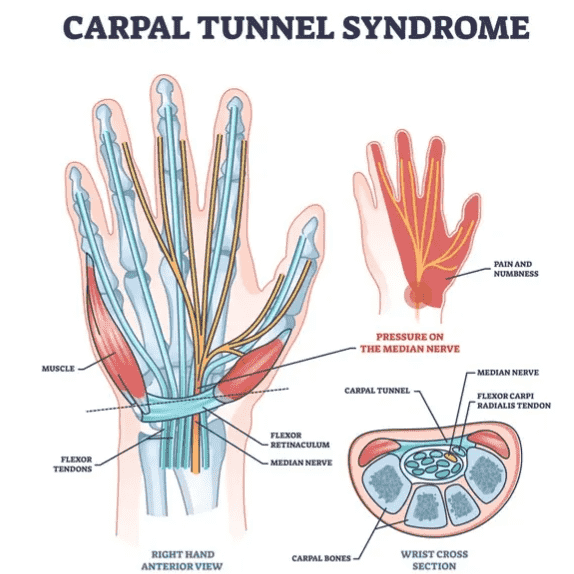BLOGS
Creating an Injury Recovery Plan: Why Tailoring Matters
No two bodies are the same and neither are injuries. Yet too often, injury recovery is treated like a “one-size-fits-all” process: generic rest, generic stretches, and a handout full of exercises that may or may not apply to your situation.
At Tualatin Valley Physical Therapy, we take a different approach: every injury recovery plan is individually tailored to the person in front of us. Why? Because a plan that’s not personalized won’t give you the best chance at healing fully or staying injury-free long term.
Let’s explore why tailoring your recovery plan matters and how a personalized approach leads to better outcomes.
Carpal Tunnel Syndrome: What It Is and How Physical Therapy Can Help
Chances are, you’ve heard of carpal tunnel syndrome, or maybe you’re experiencing it yourself. That familiar tingling or numbness in your fingers, the wrist pain that flares up at the keyboard, or the hand that suddenly feels weak and clumsy? That’s not something to brush off. It could be carpal tunnel syndrome (CTS), and if left untreated, it can lead to chronic discomfort or even long-term nerve damage.
The good news? You can often manage and recover from carpal tunnel syndrome without surgery, and physical therapy plays a major role.
Understanding Orthopedic PT: When and Why You Need It
Orthopedic physical therapy (PT) might sound like something only athletes or post-surgical patients need, but the truth is that almost everyone can benefit from it at some point in their lives.
If you’ve ever dealt with joint pain, muscle strains, limited mobility, or injuries from daily life, workouts, or accidents, then orthopedic PT is designed for you.
Let’s break down what orthopedic physical therapy actually is, what conditions it treats, and when you should consider seeing a PT.
Managing Lower Back Pain Without Surgery or Medications: A Conservative Approach
Lower back pain is one of the most common reasons people seek medical care, yet many find themselves facing a maze of treatment options, from surgery to medications, that may not address the root of the problem. Fortunately, a growing body of academic research supports conservative care methods that focus on active self-management, physical therapy, and lifestyle modifications as safe and effective alternatives.




